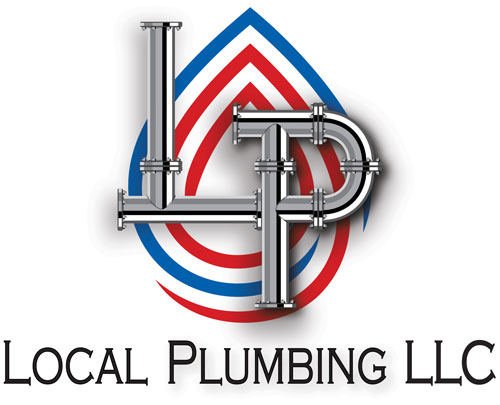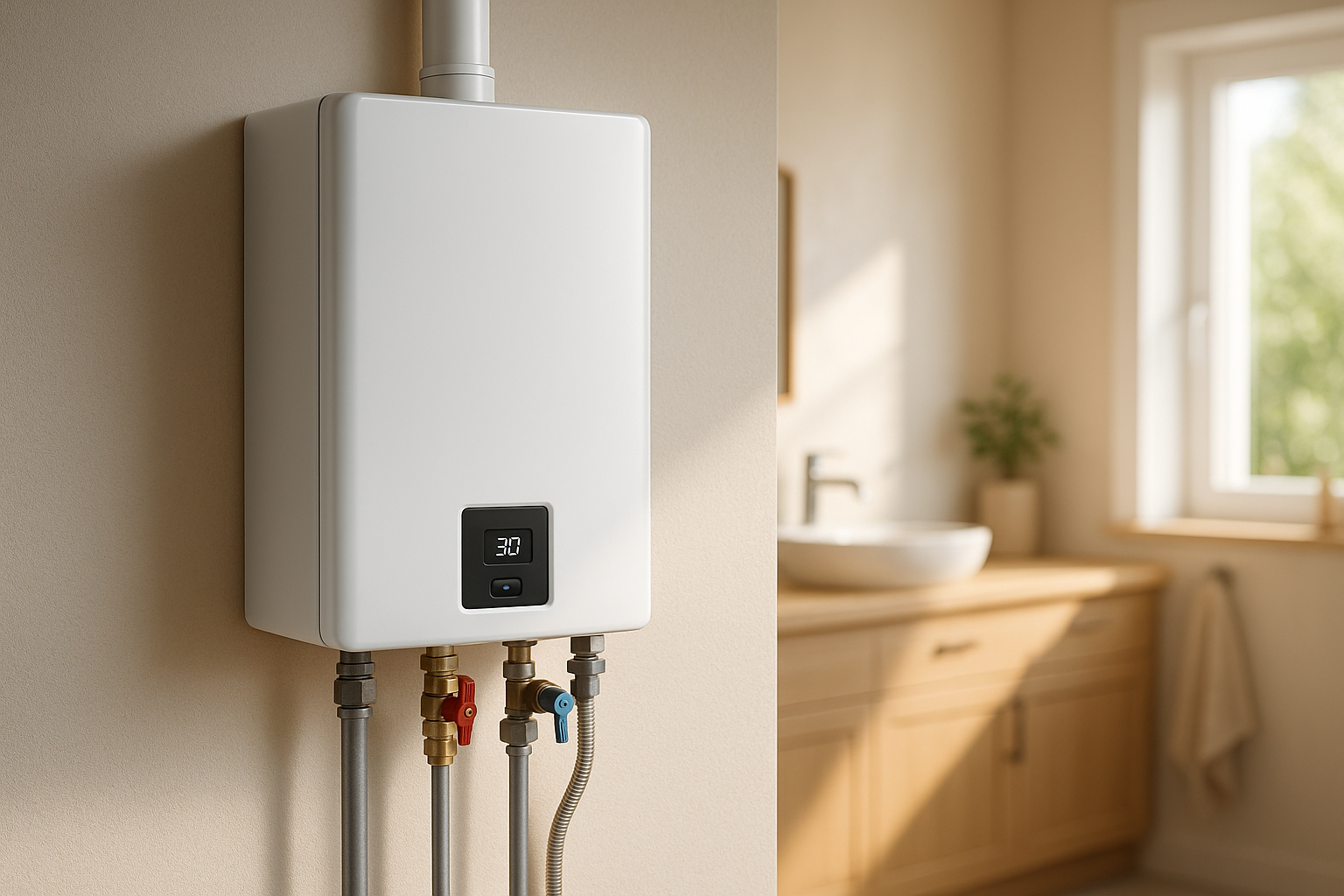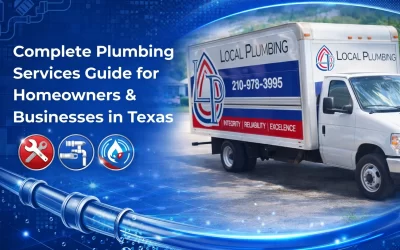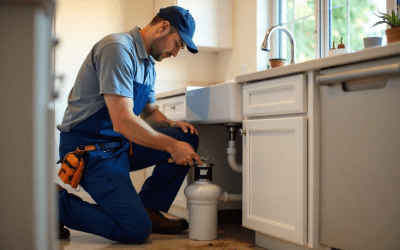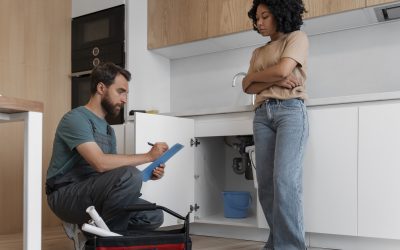Tankless water heaters, also called on-demand water heaters, provide hot water only when it’s needed, offering better energy efficiency compared to traditional storage water heaters that store and maintain large volumes of water. However, Tankless water heater systems can sometimes encounter issues such as fluctuating water temperatures, low flow rates, or decreased efficiency if they aren’t properly maintained or optimized. Therefore, understanding these common concerns is crucial for maintaining a smooth-running system.
In this blog, we’ll explore some of these expert tips and practical strategies, highlighting which optimization steps can be safely handled at home and when it’s best to call a professional. Let’s read more into it!
Most Common Optimization Concerns With Tankless Water Heaters
Before you can optimize, you must know what typically goes wrong. Here are the most frequent concerns homeowners face with Tankless water heaters:
Temperature fluctuations
Sudden changes from hot to cold water often occur when multiple fixtures, like the shower, sink, and dishwasher, are running simultaneously or when the unit is undersized as per your household’s peak demand.
Reduced Flow Rates
Low water pressure can prevent the Tankless water heater from activating properly or delivering the desired temperature. This is due to the fact that when your house is dealing with clogged aerators, partially closed valves, or undersized plumbing lines.
Mineral Build-Up
Hard water, caused by weather conditions, can leave behind calcium and magnesium deposits on heating elements and internal pipes, which reduces efficiency and potentially triggers error codes in tankless water heaters.
Inconsistent Ignition or Burner Issues
If your house has a gas-powered Tankless heater, then it may fail to ignite consistently due to clogged burners, gas supply problems, or venting issues. This can lead to delayed hot water delivery or intermittent heating.
Proven Tips for Optimum Utilization of Tankless Water Heaters
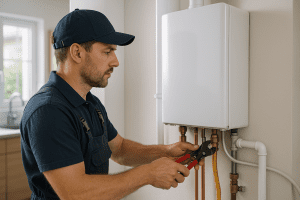
Now we will discuss some proven tips that you can easily do on your own to optimize your Tankless heater:
Maintain Proper Temperature Settings
Suppose you check the control panel and see it’s currently set at 150°F. That’s a bit higher than necessary and could increase your risk of scalding while using extra energy. Simply adjusting the temperature down to 130°F, which is right in the middle of the recommended range, 120°F and 140°F, will make the water comfortably hot without being dangerously hot, and your water heater uses less energy than before, helping lower your utility bill.
Clean or inspect the inlet filter
In regions such as Cibolo and New Braunfels, Texas, where water hardness levels often exceed 20 grains per gallon, mineral buildup is a common issue. Hence, it is advised that after every few months, try to shut off the cold-water supply and open the purge/cleaning valves, or remove the inlet filter screen and rinse it. This simple task helps prevent sediment buildup, reduces the risk of clogs, and prolongs the lifespan of the water heater, keeping your hot water supply steady and reliable.
Regular Descaling
Scale buildup inside a water heater can cause uneven heating, reduce water flow, and even trigger corrosion over time. Use a vinegar solution or a descaling chemical to flush through the heater (via purge ports) for 30–60 minutes. You can also opt for installing a water softener or using a magnetic descaler to prevent the constant accumulation of minerals. Regular descaling is vital for water heater maintenance. Many manufacturers recommend descaling at least annually or biannually, depending on the water quality in your area.
Insulate hot water pipes and reduce heat loss
Insulating your hot water pipes is an effective way to minimize heat loss and improve energy efficiency. You can use foam pipe insulation on exposed hot water piping. The U.S. Department of Energy has also noted that insulating hot water pipes can reduce heat loss and raise water temperature by 2°F–4°F hotter than uninsulated pipes, allowing you to lower your water temperature setting. This simple upgrade can lead to significant energy savings over time.
Seasonal Adjustments
Seasonal temperature changes can impact the water entering your heater, so adjusting the temperature settings accordingly helps to maintain efficiency. In colder months, slightly increasing the setting ensures consistent hot water, while in warmer months, lowering it prevents overheating and unnecessary energy use. Therefore, regularly monitoring and adjusting your water heater according to seasonal fluctuations reduces wear on the system and ensures reliable hot water year-round.
When to Call a Pro: Signs Your Tankless Heater Needs Expert Help
Well, some issues might be resolved on your own, but some need to be tackled by professionals, who make it easier for you. Here’s how they can assist you:
Persistent Error Codes
Let’s say your unit is repeatedly displaying error codes despite routine maintenance. It means there is a possibility of a deeper issue, such as a failing sensor, scale on the heat exchanger, or internal component malfunction.
Gas or Electrical Supply Issues
Dealing with constant fluctuation of gas pressure, improper venting, or electrical supply problems that compromise safety and performance. Well, these require certified technicians for inspection and repair.
Severe Mineral Buildup
Another concerning sign is when descaling at home does not resolve temperature fluctuations or low flow. That’s when a professional cleaning may be required to remove significant mineral deposits inside the heat exchanger.
Unit Not Activating
If the heater fails to turn on or maintain a consistent hot water temperature, it may require the replacement of a permanent component or professional troubleshooting.
Now that we have a thorough understanding of some problems faced by Tankless water heaters, it’s clear that certain areas might not require self-done techniques. Thus, partnering with an experienced service provider ensures that your Tankless water heater operates properly without any hassle. So, why not let Local Plumbing LLC handle this whole process and keep your hot water flowing effortlessly? We offer experienced plumbing Services in Cibolo, Schertz, New Braunfels, and San Antonio, making sure that your system operates efficiently and safely. Contact us today (210) 978-3995 for more information!
